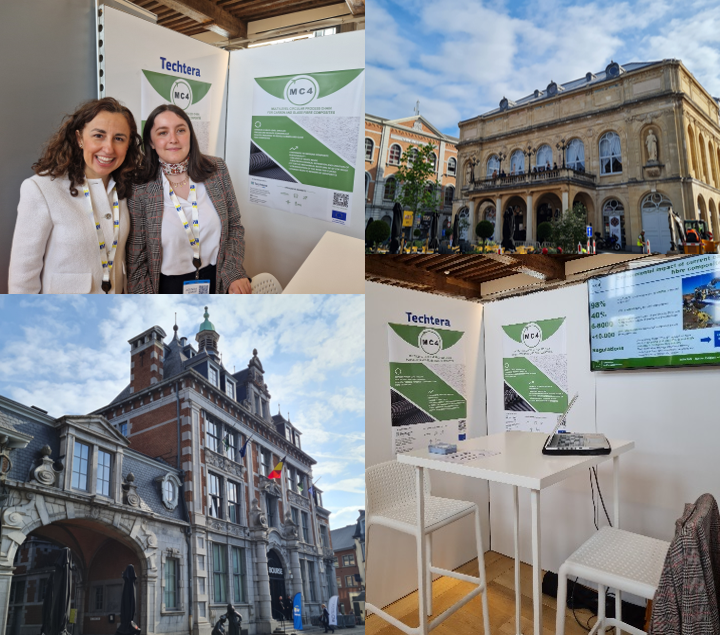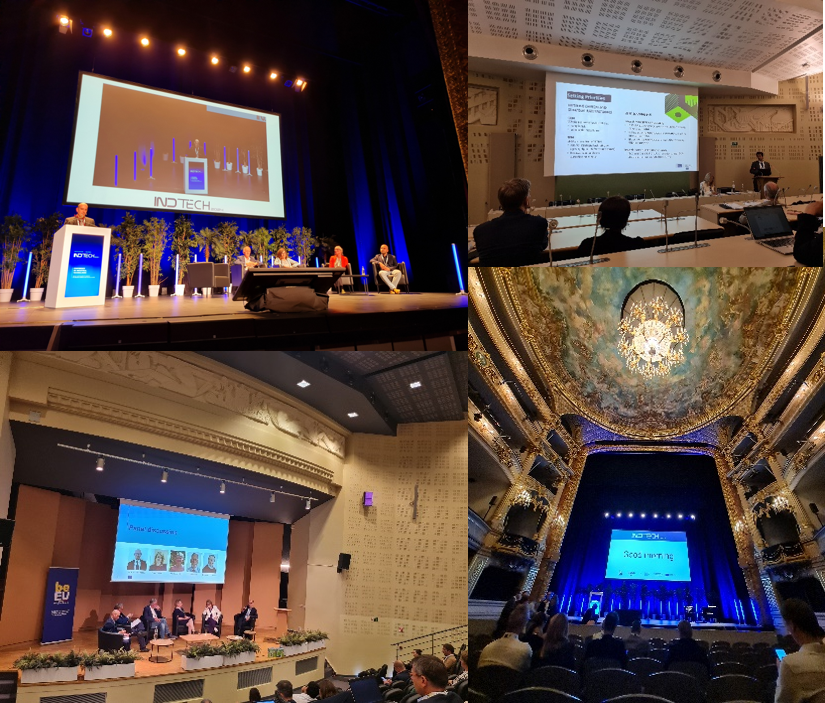Introduction
Last week took place the Indtech conference in Namur from the 3rd to the 5th of June. This conference about industrial technologies and their current challenges gathered scientists from all around Europe around conferences, exhibitions and B2B meetings.

Several topics were at the heart of the Indtech event like the European competitiveness, advanced materials, European partnership or even open innovation test beds. In the exhibition area, European projects were presented and Techtera took the opportunity to present the MC4 project. Other partners like CIDETEC were also present and showed their support by visiting the booth.

Value chains
The message that came back in several presentation was the importance to have full value chains in Europe in all of the sectors. Indeed, today there is a fragmentation in European countries. For example, in the textile industry, there is a lack of raw material producers in Europe (PES, PA, CO…) which can lead to a dependency problem towards foreign countries. As a matter of fact, the textile sector has already experienced this issue during the covid-19 when the access to key raw materials was deeply disrupted. Moreover, if the countries who have the entire value chain decide to stop providing Europe, the European companies won’t be able to maintain their activities. This is why we need to improve strategic autonomy.
Scale up
Another issue that was raised is the lack of scaling up after Research and Innovation European project. Indeed, in Europe there are a lot of R&I projects being financed every year on crucial and key topics like the MC4 project with composite recycling. The problem is that most of the time, the innovations developed in these projects take time to scale up and, in some cases, never do and stay at the demonstrator level. This scalability issue results in a lack of entrepreneurial successes in Europe which leads the investors to be reluctant to invest in European innovations. This is problematic as the public money isn’t enough to finance European initiatives and there is a need for private money. Moreover, Europe could end up being an incubator for the world as the innovation comes from European countries but the upscale happens quickly in Asia or in the United States.
Talents
Eventually, European companies have difficulties retaining their “talents” in their structures and often they just end up leaving for other countries. They tend to leave for better salaries and because they feel like they will be able to innovate faster and to see their innovations on the market much quicker. This is a real issue as Europe trains its talents only to see them go elsewhere after their thesis or projects.
For all these reasons, it is crucial that European research and European projects include economic aspects in their initiatives. This will allow to better characterize the market potential of research and innovation actions, and to identify both targets and channels to ensure the uptake of innovations by the industry, with an impact outside of the consortium.
The Indtech conference event will be reconducted for 2025 and will take place in Krakow from the 2nd to the 4th of June and will be about: “ Driving Green Technologies and Materials in Industry”.
Follow this link if you want to know more about the MC4 project: News and events – MC4 Project (mc4-project.eu)
Follow this link to see the MC4 project Linkedin account: (2) MC4 Project : administrateur de la Page LinkedIn | LinkedIn
“Funded by the European Union. Views and opinions expressed are however those of the author(s) only and do not necessarily reflect those of the European Union or the European Health and Digital Executive Agency. Neither the European Union nor the granting authority can be held responsible for them.”
